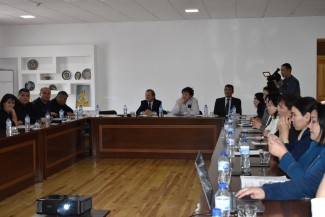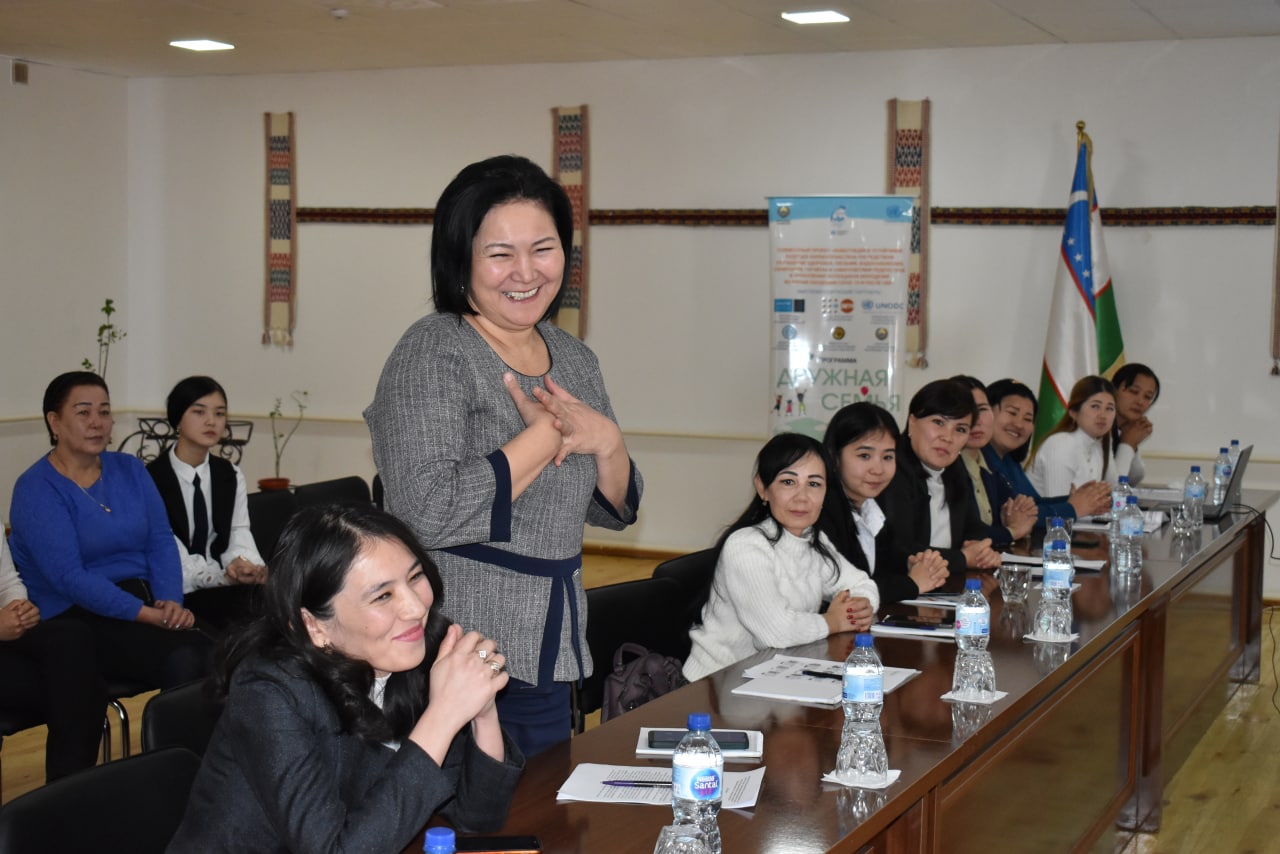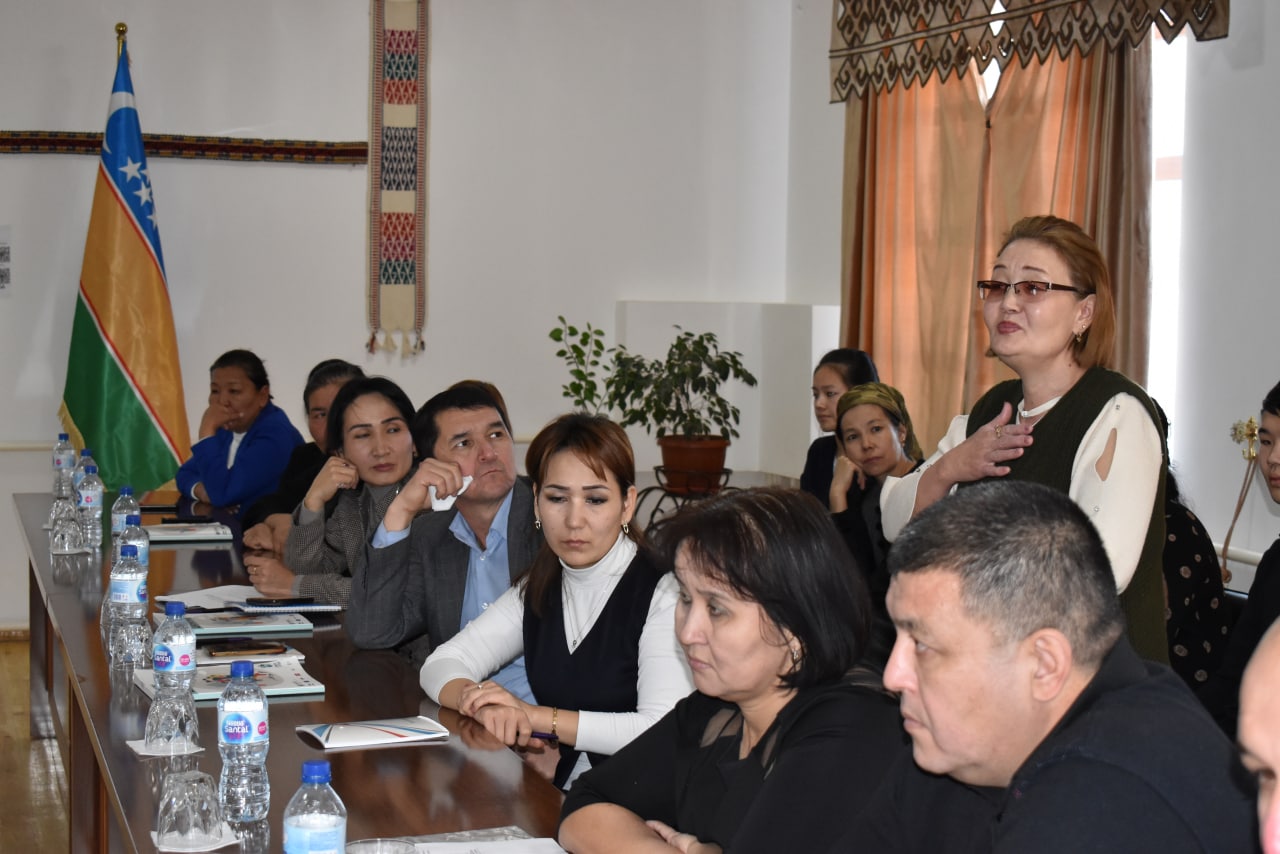UNODC held a National Round Table on the "Family UNited" programme

Nukus, Republic of Karakalpakstan. 7 December 2022. The Regional Office in Central Asia of the United Nations Office on Drugs and Crime (UNODC ROCA), in collaboration with the Ministry of Public Education of the Republic of Karakalpakstan, conducted a National Round Table. The event was held within the framework of the joint UNODC/UNICEF/UNFPA project “Investing in a resilient future of Karakalpakstan by improving health, nutrition, water, sanitation, hygiene and well-being of adolescents and by harnessing the talents of youth during and after COVID- 19” with the financial support from the UN Multi-Partner Trust Fund for Human security for the Aral Sea region in Uzbekistan, its donors and development partners. UNODC component of the joint project was implemented through UNODC Programme for Central Asia 2022-2025 with support from Prevention, Treatment and Rehabilitation Section, UNODC HQ in Vienna.
The main purpose of the meeting was to present the results of introducing the family skills training programme “Family UNited” in selected schools of the three pilot districts (Muynak, Bozataw and Kungrad) of the Republic of Karakalpakstan as well as discuss with national partners possible ways of ensuring programme sustainability in the region.
The event started with a presentation on the stages of implementation of the "Family UNited” programme in three pilot districts of the Republic of Karakalpakstan. As part of the joint project, more than 90 trained psychologists and educators conducted the programme for 1,660 families in 60 selected schools. During the course of the programme, families gained valuable skills in normalizing and managing stress, expanding resources to cope with stress, improving mental health, positive and healthy ways to fit in with peers, and improving communication and relationships within the family.

Following the presentation on the implementation of the programme, there were presentations by facilitators as well as by parents and children who benefited from the programme. Both the psychologists and the program beneficiaries spoke positively about the programme as well as shared their success stories and the positive changes they saw in their families. At the end of the presentation the participants were shown a video on the "Family United" programme.
Next presentation of the meeting was devoted to results of the evaluation of the "Family UNited" programme piloting. Analysis of the evaluation demonstrated significant positive changes on all parenting and family adjustment, as well as child mental health indicators, such as parent-child-relationship, emotional problems, conduct problems, hyperactivity and peer problems. In addition, significant improvements on child resilience indicators were found before and after the programme.

At the end of the National Round Table possible mechanisms of scaling up and ensuring sustainability of the programme implementation in the Republic of Karakalpakstan were discussed with national partners.
